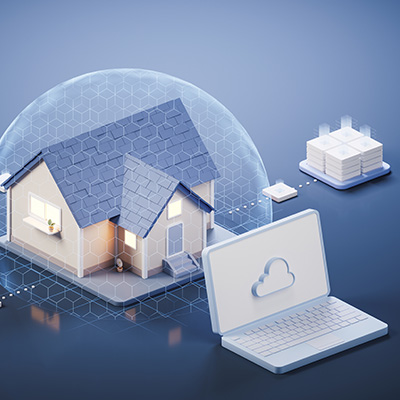There’s been a huge surge in remote working in recent years. We are in favour of this trend, because of its many benefits, but it’s important that businesses that adopt remote or hybrid work practices attend to the security issues that come with it. Let’s take a look at measures that business should take to ensure that security isn’t compromised.
Security for Remote Working
There are some crucial safeguards that are vital for secure remote working., so let’s run through them.
Make Use of a VPN
Here are the options: Is it better to use your organization’s secure network infrastructure? Or do you like the sound of your local coffee shop’s generic network, with the password on a board above the counter, for all customers to make use of?
If you prefer the second option, call us now and we’ll explain why that’s the wrong choice!
You might say that you’re well aware that the first option will be more secure – but what are supposed to do while you’re out and about? This is where a VPN (virtual private network) comes in. With a VPN your connection is encrypted and inaccessible to unauthorised viewers, but your team members can access your materials safely via your network.
All organizations should insist that staff working remotely use a VPN. That includes all out-of-office work, whether it’s from home, while traveling on business or that lunchtime coffee break in a café that we just mentioned.
Check that Devices and Software are Secure
All devices need to be checked by your organization’s IT team. Using technology that’s not approved can be a major security problem. If you’re using an unauthorized device yYou may be sacrificing control over both the device and the data on it, and this can result in serious issues when it comes to data security compliance regulations for your sector.
It’s the same with software. Only authorized software should be used. If staff members are downloading their own software, the door is open for security problems when potentially dangerous data packets are downloaded.
Ensure Regular Maintenance of Devices and Software
Proper maintenance and regular checks are important, because it helps to maintain efficiency and trouble-free working, but also because it means that you can make sure that optimal security is in place.
Whether your staff are using devices issued by your organization or their own (laptops, phones and similar), these also need to be monitored and checked regularly to make sure that they are – and remain – secure. It’s the same with software, because cybercriminals are constantly creating new ways to breach security. At Quikteks, we can use the software we use to monitor your in-office technology to make sure that your team’s remote working is secure.
Set Standards for Security
It can’t be repeated often enough (so we’ll keep saying it): keeping on top of your organization’s cybersecurity with regular checks and ongoing maintenance is absolutely essential. Remote working, and managing the potential threats it poses, is something that you must factor in. That also means making certain that your staff understand that it’s also their responsibility to maintain security standards. As well as appreciating the problems posed by unauthorized devices and software and insecure connections, staff need reinforcement around best practices. They include being alert to phishing scams and using strong passwords, preferably with multi-factor authentication. Reminding your staff about these best practices is crucial for maintaining your network and data security.
Our job is helping businesses to be efficient and secure – whether your staff is in the office, at home or on the road.
Call Quikteks at 973882-4644 for more information on technology for your business and how to keep it secure.

